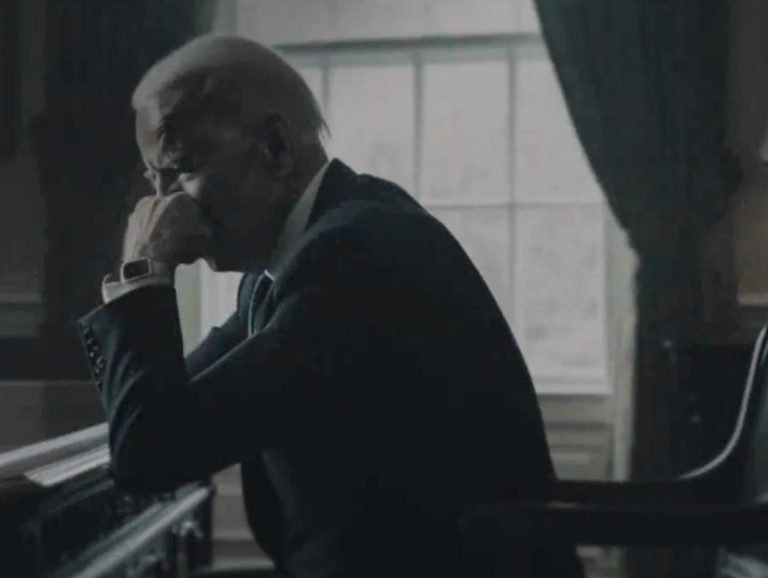By ART CHANCE
The next step in the helter-skelter scenario begins. The Left has demonstrated that it can win pretty much any consequential election in Alaska, especially those in places with built-in voter fraud, excuse me with mail-in voting.
Fundamentally, there is no organized opposition to the Left and the mortal remains of the Republican Party are nothing more than a shell; the Party needs candidates more than candidates need the Party.
There is almost no meaningful private sector in Alaska and the oil industry might stir itself to look to its own interests but beyond that Alaska is a backwater in which it has little interest.
Light a candle for the physical health of the pipeline infrastructure, because if they had to spend any significant amount of money to fix it, they probably wouldn’t.
For those of you who don’t know; when the pipeline is no longer transporting oil, it has to be disassembled and the right of way restored, and thus ends the oil industry in Alaska amid dancing in the streets in San Francisco.
Whether with a bang or a whimper, the days of oil are about over. The fondest hope of those who fancy themselves to be Alaska’s ruling elite is that magical day when the corpus of the Permanent Fund is safely over $100 billion. Barring a monumental Biden gaffe, that magical day will come soon.
The magic of $100 billion is that at least in the minds of the proponents of this scheme, at $100 billion in the corpus the Permanent Fund can support ongoing operations of State government and maintain the fund in perpetuity. I believe you are delusional if you believe that, but we’ll discus that later.
At $100 billion, Alaskans become trust fund babies. We don’t really need natural resource or other economic development. We don’t need a private sector other than what is minimally necessary to get our laundry done and our cars and machines fixed. Visualize the Juneau economy statewide. We don’t have to care if they disassemble the pipeline; all we have to do is wait for the check to come from the Department of Revenue.
First, that means we need to lose some population. We need to get our population down to a minimal service population so we can get our laundry done, our food served, and routine service work done like fixing lawnmowers and the like.
Then we have our healthcare workers, our education workers, and our unionized public employees. Then we have a large, maybe larger than any of the other three, population of government dependents. Our tiny private service population and the government rackets above are the Alaska res publica. The rackets are easy to please; just give them more money, and they can buy politicians who would just love to give them that money. Those who work behind the counters and in the repair shops can just hope for some largesse. Maybe the Legislature will come up with some extra special stipend for people who repair electric cars.
This is the brave new world the smart people envision. Alaska becomes the longtime greenie dream of a big National Park. Almost nobody does any of that nasty physical work or builds anything; we don’t need to build anything because we have everything we need and our $100 billion to keep it going.
A third or more of our population does nothing but wait for the check and maybe make babies. It already doesn’t matter what teachers or other unionized employees do; nobody evaluates them and only a few of us mutter in the wilderness about why we spend so much for so little.
The medical types will shed all of those with private insurance or Medicare. I’ve already learned that it is easier, better, and other than the airfare, cheaper to go to the Mayo Clinic in Phoenix. When they get rid of all us surplus people, it is lefty Utopia!
All that said, I’ve been around government for a long time. I quickly learned that the immutable law of public finance in Alaska is, “however much money there is to spend, will be spent.” I can point you to a long list of candidates for office who promised to rein in spending only to lose to someone who promised to spend more. Sarah Palin vs. Frank Murkowski is the best example of that.
We flirted with the trust fund baby plan in this budget; we’ve scratched up every dime we could get without borrowing, and some of what we’ve done is technically borrowing, and we’re spending every dime of it. They’ve put up an attractive number for a PFD that will probably keep the masses sullen but not mutinous.
If we try to live on this “spend it all” margin, even at $100 billion, the State will be broke in five years. Alaska’s congressional and legislative delegation will be crawling to Washington, D.C. on their hands and knees to beg for money.
Welcome back to 1960. Much of America wasn’t happy to have Alaska join the union. The US was mostly just responding to Soviet anti-colonial pressure by offering statehood to two of its territories, Alaska and Hawaii. Alaska was just viewed as a welfare burden, and until the Cook Inlet oil discoveries, rightly so. Cook Inlet is all but gone and Prudhoe Bay is badly depleted. There is some opportunity for more development on the North Slope but not so long as the communists, excuse me, Democrats are in charge.
Looking at the operating budget, my “back of the matchbook” estimate is that it would take about 10%/yr just to maintain current service levels. Executive Branch wages alone cost about 4%/yr. to maintain.
State investment accounts in good years have been returning 7% or so.
The best investment earnings we could expect are not enough to keep up with the incremental cost increases in government operations, and that requires you to assume that the Legislature won’t pile on new expenses “for the children” or some other such foolishness.
It will be 50 years in Alaska this September. I haven’t called the real estate agent or bought the “for sale” signs, but it has been on my mind.
Art Chance is a retired Director of Labor Relations for the State of Alaska, formerly of Juneau and now living in Anchorage. He is the author of the book, “Red on Blue, Establishing a Republican Governance,” available at Amazon.
Art Chance: Palin is finishing what she started, as every Democrat’s favorite Republican
Art Chance: The barbarians have been inside the gates before in Alaska, and they’re back
Art Chance: The 1609 Project and the indentured servitude of immigrants








